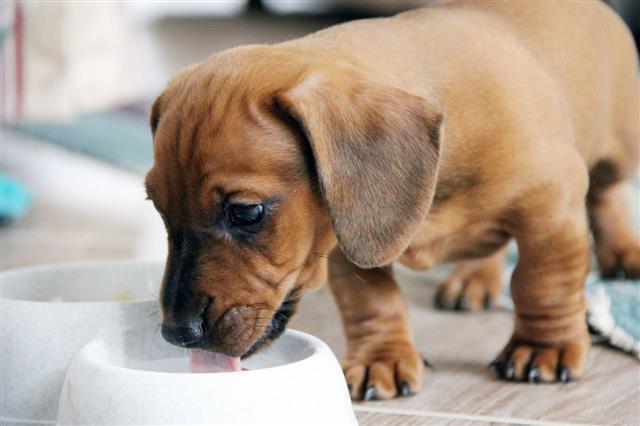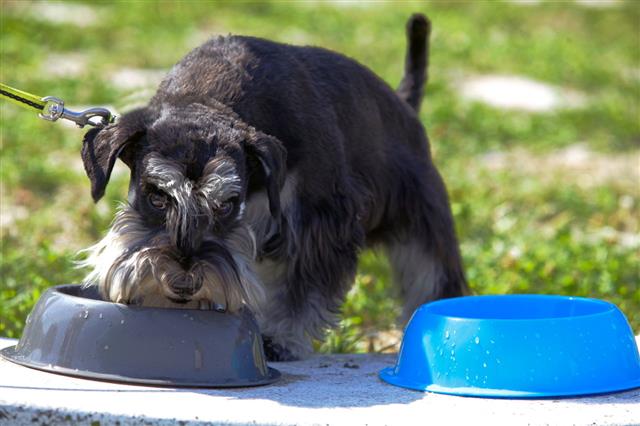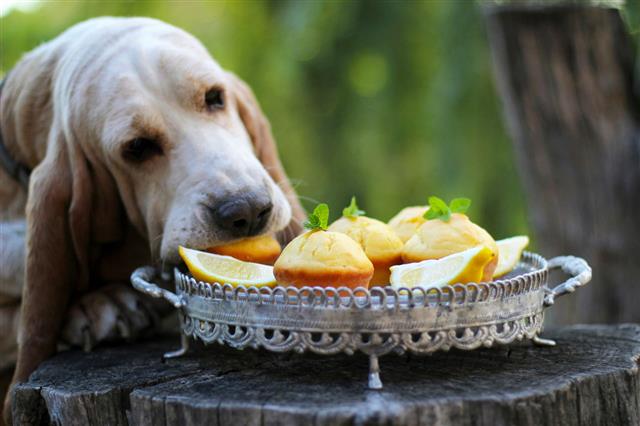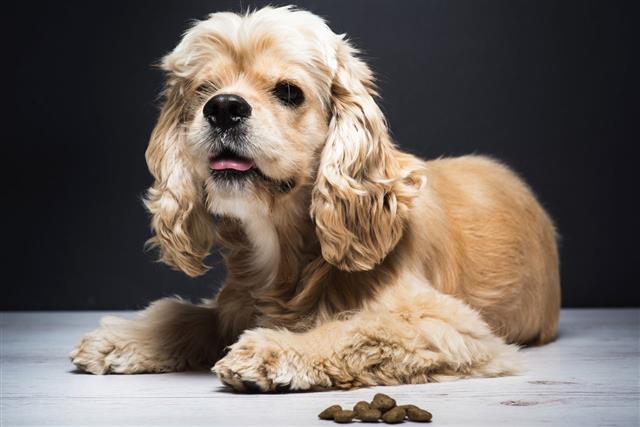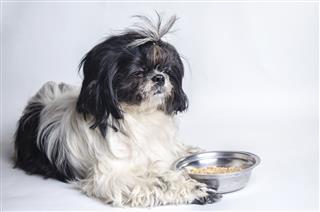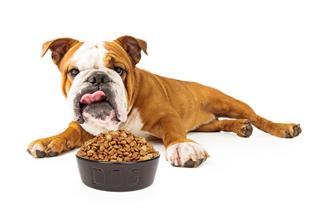
Wondering what causes dark yellow urine in dogs? Are you aware of the circumstances under which the color of urine in dogs may change to dark yellow? Scroll down to find out about the causes of dark yellow and smelly urine in dogs.
It is the duty of pet owners to make sure that their pet enjoys the best of health. They should pay attention to their pet’s behavior, and never ignore signs that might be indicative of poor health. Changes in the color of urine could also be indicative of poor health. Basically, urine refers to the waste products that are filtered from the blood and flushed out of the body, while the necessary nutrients are reabsorbed into the bloodstream. The color of the urine can sometimes provide valuable insights on the health of your dog. If the dog’s urine is dark yellow in color and also has a strong odor, the best thing to do is to take your dog to a vet.
Contributing Factors
The color of the urine is an indicator of the kidney function. Under normal circumstances, the urine must not be concentrated, and the color must be light yellow. In some cases, dark urine in dogs could be a sign of kidney problem. If your dog is passing concentrated, dark yellow urine, it could be due to the following reasons:
Dehydration
There is a great need to ensure that your pet is well hydrated. Dark yellow urine may be indicative of dehydration. If left untreated, excessive loss of electrolytes or body fluids can even cause organ failure. Fluid loss could take place in hot weather, or may occur due to vomiting or diarrhea. If fluid loss that takes place due to breathing, panting, urination, or evaporation through the feet or body, is not compensated by the water intake, the body tries to retain fluids. Under such circumstances, urine may become concentrated. Lethargy, loss of appetite, sunken eyes, dry mouth, dark yellow urine with strong odor, or too little urine are some of the symptoms that a dehydrated dog may exhibit.
Ailments
Formation of kidney stones or bladder stones could also occur as a result of dehydration. If your pet dog is not drinking enough water, the urine would become concentrated. Minerals in urine may crystallize to form hard stone-like deposits. These stones can obstruct the passage of urine and cause painful urination. Besides bladder problems or kidney stones, liver problems could also be responsible for the change in the color of your pet’s urine. Jaundice is one such condition that may be responsible for the change in the color of urine from pale yellow to dark yellow. Pancreas problems, diabetes, urinary tract infection, or hemolytic anemia also figure in the list of ailments that may affect the color or odor of urine. Old dogs that have been diagnosed with an ailment may have to be administered certain drugs. The dark yellow urine may be due to the use of supplements or drugs.
Dog Food
As is the case with humans, animals are also likely to develop health problems, if their diet is not providing them with the required nutrients. It is the duty of the pet owner to ensure that their pet is getting nutritious food. It is essential that you first identify the brands that are known for providing good quality dog food. This will rule out the chances of your pet ingesting food that may contain toxins or additives.
Preventive Measures and Treatment
Since the change in the color of urine is mainly attributed to dehydration, the owners must monitor the pet’s intake of water. They must ensure that their pet stays well hydrated at all times. They must also make sure that they fill the pet’s water bowl with clean water. The water bowl must also be cleaned. Loss of fluids can occur during hot weather. So, make sure that your dog is kept at a cool place. If your pet refuses to drink water, it would be best to consult a veterinarian. Blood tests and urinalysis can help the veterinarian assess the underlying cause of dehydration. If the pet is affected by severe dehydration, it must not be allowed to gulp down a lot of water at one time. This may induce vomiting, which in turn would again lead to the loss of fluids. So, let your pet drink little sips initially.
The administration of an electrolyte product called Pedialyte can also help alleviate the symptoms of dehydration in dogs. Also, the owner must also provide nutritious food to promote optimal health. Since dark yellow urine may be caused due to various medical conditions, it’s extremely essential to identify the underlying cause. X-rays or other imaging procedures can be used for checking the internal organs. Once the underlying medical condition is diagnosed, the veterinarian can recommend suitable treatment options.
On a concluding note, dog owners must ensure that they are providing their pet with the right diet. Also, make sure that the fluid intake of the pet is adequate. If your dear pet is passing dark yellow urine, consult a veterinarian at the earliest.
Disclaimer: The information provided in this article is solely for educating the reader. It is not intended to be a substitute for the advice of a veterinarian.
